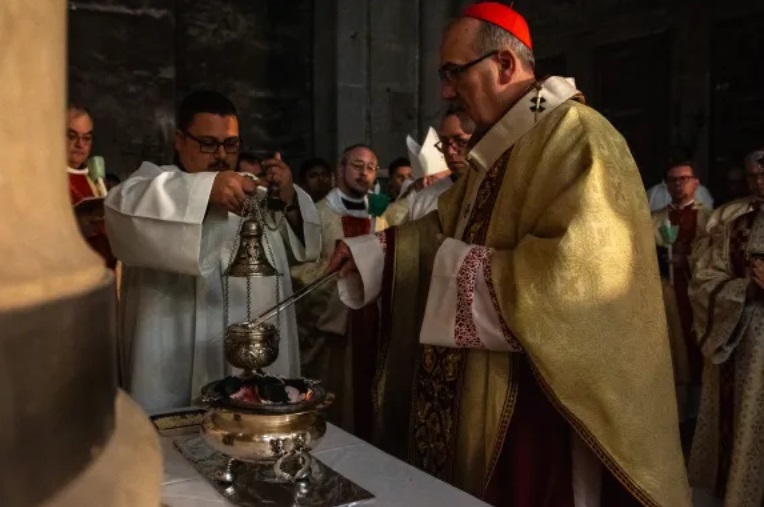The basilica was notably empty, with a clear absence of pilgrims and Christians who usually come from the Palestinian Territories for the Easter festivities. The reference to the current situation emerged in the words of the patriarch: “The terrible days we are living seem to have annihilated our expectations, to have closed all roads and erased the future. ... Everything around us seems to speak about the end, about death. But if only we looked up, perhaps we too, just like the women in today’s Gospel, would be able to see something new, something that is being fulfilled.”
“Jesus,” the patriarch added, “has unhinged the gates of the kingdom of death with the only weapon that death cannot resist, which is love. If we remain in love, we are no longer prisoners of death. If we love, we are free, we are risen.”
These words introduce the third moment of the liturgy of this day, which is the renewal of baptismal promises. On the north side of the edicule of the Holy Sepulcher, the patriarch blessed the water by immersing the Easter candle in a very evocative rite.
After blessing the priests and the faithful, the Mass continued with the Eucharistic liturgy, in which the faithful participated in the table prepared by the Lord himself through his death and resurrection.
“What I wish you all,” the patriarch said, “is to stop seeking among the dead he who is alive (cf Lk. 24:5)” but “like the women of the Gospel, may we have a renewed desire to look up. May today’s Easter be an invitation to set out, to seek the signs of his presence, which is a presence of life, love, and light.”
At the conclusion, following the solemn blessing, the patriarch extended Easter greetings and bid farewell to all those present.--CNA








Total Comments:0